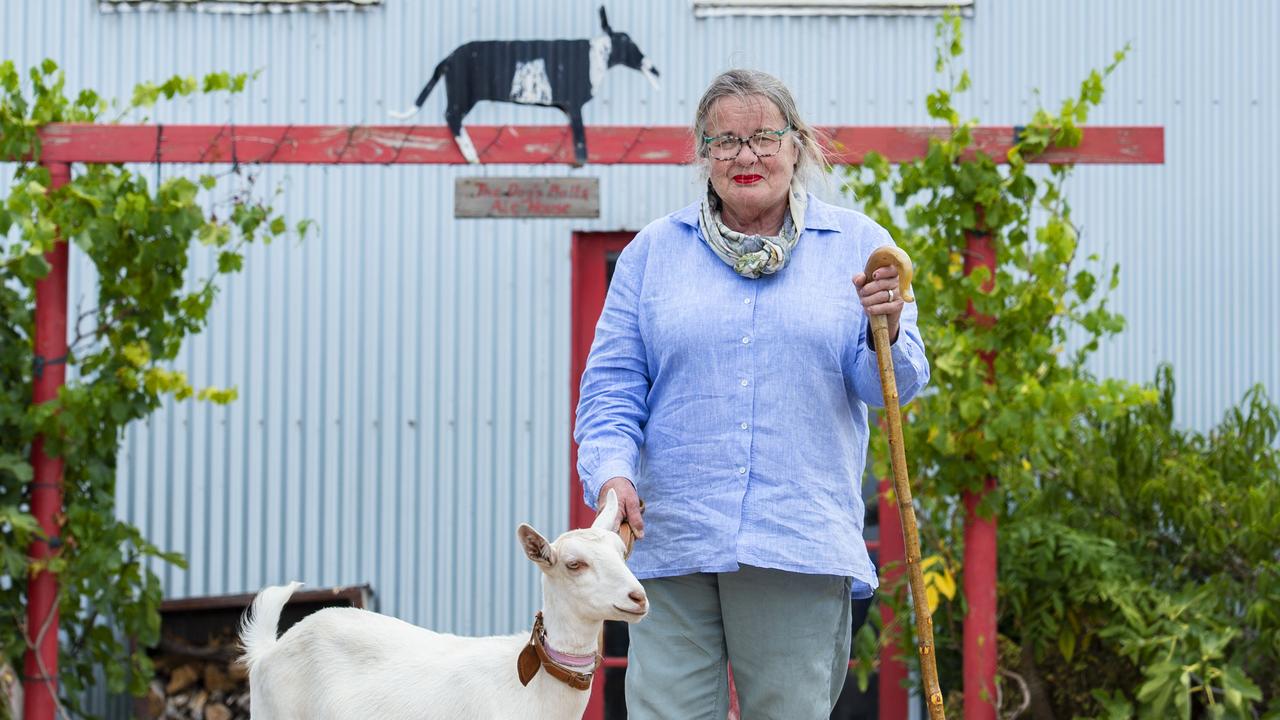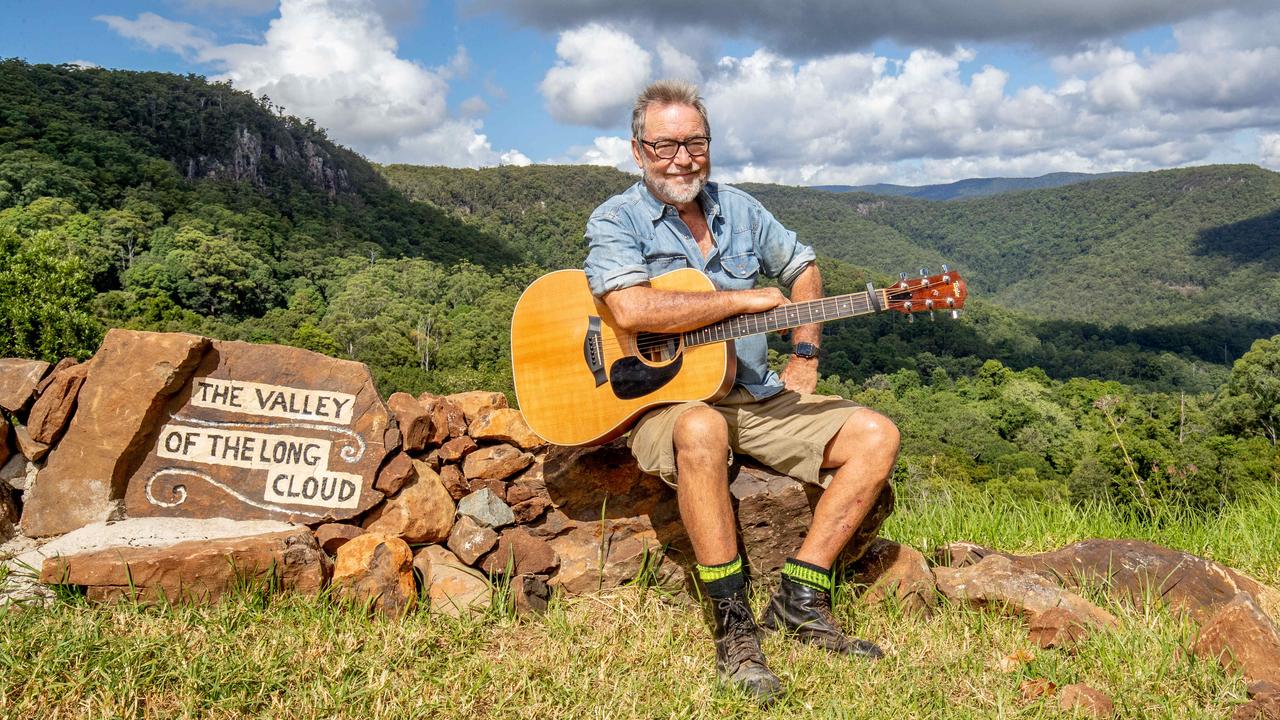Camel Connection: Rides, treks, training by East Gippsland couple
From the back veranda of this property, the view is quintessential East Gippsland — except for the herd of camels.
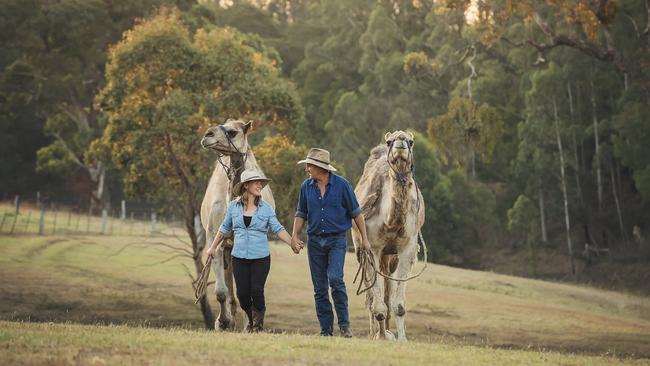
FROM the back veranda of Tara Lea and Russell Osborne’s home, the view is quintessentially winter in East Gippsland: towering gums, rolling green hills and dairy cows.
Quintessential, that is, except for the couple’s herd of 10 camels, nibbling on pastures.
“Camels are not grazers, but foragers. They can adapt to pastures, but prefer shrubs and trees,” says Tara, before calling out in deep rumbles to the herd.
“They adapt well to any environment and don’t mind a Gippsland winter. After all, it gets cold in the desert and they have thick coats that shed in summer.
“All the neighbours are used to them and apart from the occasional grumbling sound they’re very silent, calm creatures.”
As peculiar as the dromedaries appear, it is what Tara and Russell and their three children do with them that’s all the more fascinating.
Based on their 5ha property in Toorloo Arm, near Lakes Entrance, the family run Camel Connections, offering treks both in Australia and overseas to adventurers and would-be camel owners. That is in addition to summer beach rides on the Ninety Mile Beach near Lakes Entrance, five days a week from December to April.
Next month they’re taking a two-week trek to India and next year they head to Mongolia and Jordan. On each overseas journey they buy local camels, train them, then donate the animal to a local town or family.
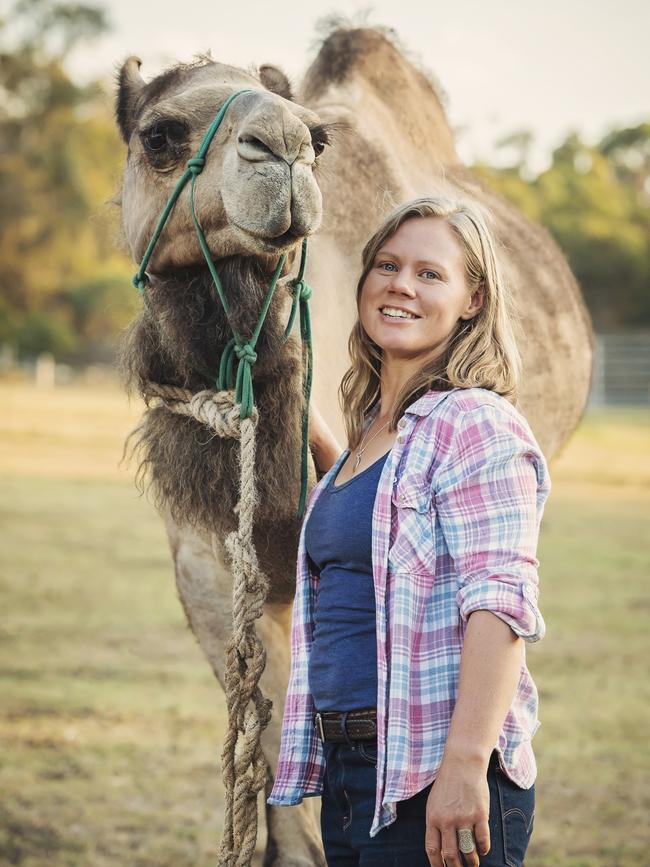
“We love to see and support other’s camel cultures because, with modernisation, these cultures are under threat of extinction. Camels are just not used as much any more,” says Tara, 33.
In July they will take adventurers on a special outback Australian trip, mustering feral camels, training and trekking with them before participants have the option of buying the camel. (The couple don’t breed camels, but own trained ferals.)
Tara and Russell have also completed charity camel rides, with Russell taking two years to ride from Darwin to Melbourne, writing a book about the experience, Camelman Dreaming, and raising money for a children’s charity.
The larger part of their business, however, is their Cameleer Academy, teaching online and in-person courses, here and overseas, to those same would-be owners, including a three-day, level-one foundation course, and a two-day, level-two course and trek.
It’s through this training work they have published a camel husbandry ebook, also run an online membership forum to answer curly camel questions, and post videos to support and mentor owners.
Even their 11-year-old daughter, Charlotte, has her own blog (Camel Girl Charlotte) and last year appeared on Channel 7’s Little Big Shots with the camels (“She’s a very intuitive animal handler,” says her mum).
So how many people out there are actually interested in, or capable of owning, camels?
“You’d be surprised,” Tara says.
“It’s definitely not as much as horse people, but we’d like to think that every animal lover could take a trek or do a course with us because everyone leaves with their minds blown and a new-found love of them.”
Tara speaks from experience. She grew up on a dairy farm in Sale and later northern Victoria, riding horses from two years of age. She left school at 15 after seeing an ad in The Weekly Times for a junior female apprentice horse trainer in Nar Nar Goon.
She got the job and for three years specialised in Western performance.
“I went up the ranks and got all the ribbons, but I was never interested in competition. For me I was always interested in the animal, exploring the psychology of the horse,” says Tara, who later taught children to ride.
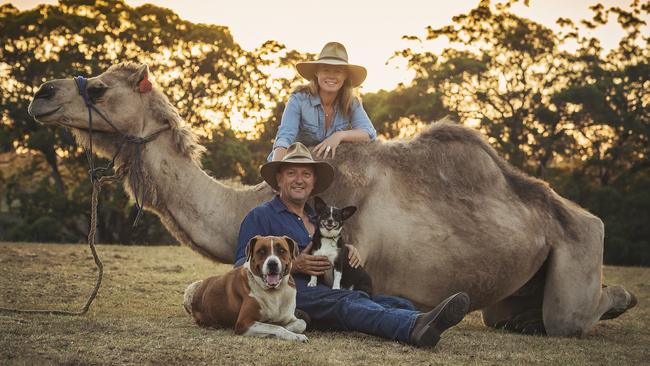
“I was a huge Monty Roberts fan and Pat Parelli (natural horsemanship trainers), and I’d attend clinics and read as many books as I could.
“I never thought about camels in my life. My whole world was horses.”
That was until 2012, when — while travelling around Australia — she met Russell on a cattle and sheep station in the Flinders Ranges. He had just started his camel trek company after completing his two year cross-continent journey.
“I fell in love with camels and then I fell in love with Russell,” Tara laughs.
“For me it was an instant migration (from horses to camels).”
Remarkably, she says, working with camels is entirely different to horses.
“I didn’t transfer any of my horse skills to camels, except for my confidence with large animals,” she says.
“They are not flight animals like horses, which run. Camels are more aloof so you have to figure them out and keep the connection going.
“With horses you have to respond quickly to their actions, but with a camel you take your time, and camels remember everything. They don’t go green like a horse.”
She says having assessed how herds behave in the natural environment, they translate this knowledge through their academy.
“It’s all about building trust and making a bond and once you have that anything is possible, then you can command them gently.
“Everything around camels has to be done quietly. They respond well to that. They like a lot of time to think. With horses you reinforce again, but with a camel you walk away and give them time to think.
“There have even been studies done that show camels have the maturity of an eight-year-old child and I’d add they have the emotional intelligence of a child that age too.”
Russell agrees, saying camels have a “unique spirit”.
“They are very astute and intelligent. There’s a misconception they are cantankerous, but they will work with you if you work with them,” says Russell, 54.
Russell and Tara ran treks around the Flinders Ranges every winter, but will now focus on training and coaching.
They will continue to run Australian treks on request, whether it’s the Simpson Desert or the Oodnadatta Track.
“We also want to take more time for personal treks. I’d like to do a mother-daughter trip with Charlotte through the Gibson Desert, to recreate Robyn Davidson’s steps (who wrote the book Tracks).
“I can’t imagine I’d go back to horses. I definitely prefer camels now.”

